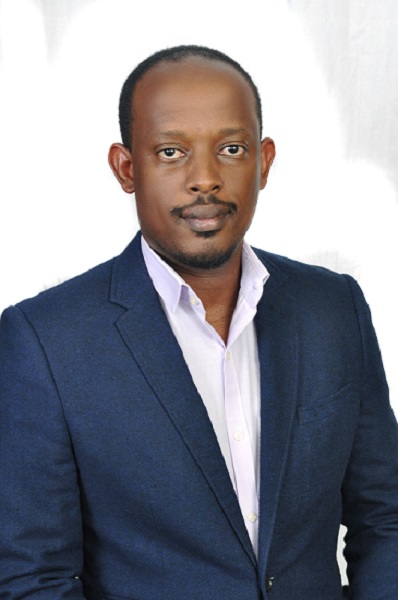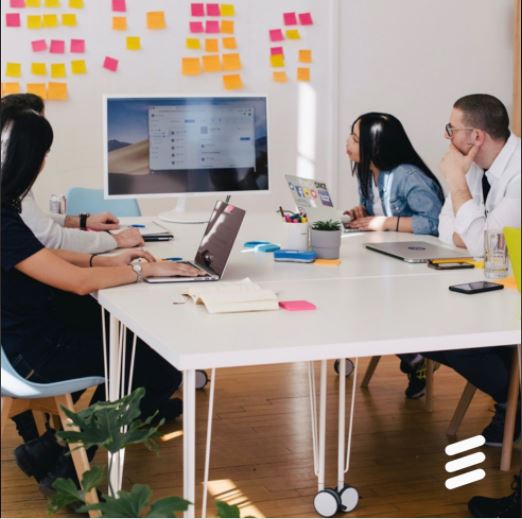Jacques Kabandana, Country Manager of Ericsson Rwanda is explaining the company’s role in helping Women to achieve their ICT ambitions.
Ericsson has committed a major role to develop female STEM (science, technology, engineering and math) leaders, in support of gender diversity in the workplace. For example, Ericsson is helping the Girl Scouts in the U.S. meet their pledge to put 2.5 million girls in to progressive STEM pipeline by 2025.
- How has Ericson been involved in this agenda, which is in line with the SDGs 4, 5, 9 and 17 in the Africa region?
- Give us a picture of How Ericsson has been involved in bridging the gender gap in ICTs
The Ericsson Graduate Program in Africa aims to grow the technical skills of graduates, train them in the Ericsson technology, solutions and their delivery and understanding our processes, methods, and tools. The Graduate Program helps Ericsson to move the needle on gender equality within the field of technology as half of the graduates hired are women.
Inspiring young girls and women to enter in STEM subjects requires role models and motivational education. To that end, we partnered with Technovation for the 2021 challenge. Technovation Girls equips young women (ages 10-18) to become tech entrepreneurs and leaders. With the support of volunteer mentors, girls work in teams to code mobile apps that address real-world problems.
To further demonstrate this commitment, we also created our Connect to Learn program, a global education initiative launched in partnership with like-minded organizations. The global initiative Connect To Learn is tackling access to education head-on. Without quality education, young people have diminished opportunities and are more vulnerable to poor health, early and forced marriage and other forms of violence. Girls in particular have a much greater chance of improving their quality of life through education, with a World Bank study recently showing that every year in secondary school correlates with an 18 percent increase in a girl’s future earning power.Sustainable Development Goal (SDG) 4 aims to ensure inclusive, quality education and lifelong learning opportunities for all. Connect to Learn supports this ambition by using technology to give those most in need access to quality education. We believe improving educational opportunities is also vital for achieving other sustainable development goals, such as gender equality.
- What does this STEM agenda mean to Ericsson?
As digital infrastructure and transaction become increasingly impactful to the development of the African societies and economies, affordable broadband access will need to be extended to over a billion individuals to bridge the digital divide and enable them to reap the benefits of the digital economy. Connectivity plays a key role in powering Africa’s digital future and in achieving a positive impact on people’s lives. And as we progress towards faster and technically superior times – the era of 5G – it is only right that leaders, men and women, of the ICT sector inspire and engage more and more young girls and women to take up STEM studies as a career opportunity, raising awareness for a better tomorrow. Having many more young girls/women join ICT as a career is important not only because diverse and inclusive teams lead to better working environment but also because it has a huge impact on our productivity. It is imperative that young women are engaged and motivated to stay the course with STEM subjects. That means breaking the barriers to entry and showcasing the impact they can have on an industry like Information and Communications Technology.
We believe that Information and Communications Technology (ICT) is the catalyst for digital transformation, with mobile networks being the crucial ingredient in increasing Africa’s economic competitiveness in the global arena. While we have witnessed impressive market developments in recent years, Africa’s ICT sector still has growth potential compared to leading economies. The future of STEM studies as a career choice is truly exciting as many ICT students today will work in jobs that don’t exist yet!
- Which area in the STEM agenda has Ericson put focus so as to develop in the region?
- What has been the impact or progress made by Ericsson in promoting this agenda
Technology has the incredible potential to secure the wellbeing of developing economies by transforming education and health services. With education being key to true and sustainable change, Ericsson partnered with UNICEF to help identify connectivity gaps and eliminate the digital divide. Mapping the connectivity landscape is a critical first step towards connecting every school to the internet and providing each child with access to learning opportunities. Through our expertise in ICT we will help to provide an understanding of where connectivity is needed the most; utilizing data engineering and data science capacity to accelerate school connectivity mapping. We will help develop a solution that supports the Giga initiative through the collection, validation, analysis, monitoring and visualization of real-time school connectivity data. The visualization helps governments and the private sector design and deploy digital interventions to support learning for children and young people. The more we’re able to support with digital interventions, the better are young children equipped to tackle a future in STEM.
- Now that it is clear women have been seriously affected by COVID-19, what plans does Ericsson have in ensuring they regain the progress in integrating gender in ICT- that was attained before COVID-19?
Ericsson has been working to empower women within the industry for over 140 years. We believe gender equality and empowerment is at the heart of our success story, as women have strongly contributed to the company’s successes. But across the wider technology sector, one of the main issues facing companies is that there remains a limited amount of talent within STEM subjects, in which the proportion of women continues to be disproportionately low. A further challenge that many companies face when it comes to gender issues in the workplace is unconscious bias, which may take place unintentionally but has a potentially damaging effect on operations and performances. Globally at Ericsson we are actively de-biasing processes to ensure people processes are as equitable as possible. In an era where data is readily available organizations can study where there are identifiably prone areas of the recruitment and people processes, which allows companies to standardize these processes transparently and make fact-based decisions.
There are huge business benefits to having women in leadership and C-suite positions. For example, an EY study of the top 200 utilities in the world found that companies with high levels of gender equality on their boards had higher returns on investments. In fact, the top 20 most diverse utilities significantly outperformed the bottom 20 – a difference that could be in the millions of dollars or more.A separate study of Fortune 500 companies conducted by Catalyst found that organizations with high levels of gender equality in management positions had 35% better return on equity than firms that hadn’t taken similar steps.
On a broader, macro level, gender parity in labor markets would mean an additional $12 to $28 trillion added to global GDP. To put that in perspective, that’s approximately the value of the American and Chinese economies of today – combined.
Part of achieving more of this will mean nurturing young female talents from an early age, encouraging them to take additional responsibilities and empowering them with the skills they need to succeed. And Ericsson has been working hard to tackle this across the globe and have been a longtime supporter of the ITU-D’s Girls in ICT Day, which aims to create a positive global environment which empowers and encourages young women to choose a field in ICT.It is crucial we continue to run our flagship programs such as Connect To Learnwhich I mentioned earlier, which is a concrete way through which we are supporting the education of women and girls. We strongly encourage girls to study STEM subjects that will prepare them for employment in the ICT sector. Ensuring inclusivity and diversity means practicing these values throughout the consciousness of an organization and we’re proud at Ericsson that throughout the pandemic we have encouraged and supported co-parenting requirements through a range of programs and flexibility. For example, we have programs focused on mental health and work life balance that ensures all genders can cover their personal and professional responsibilities with ease.
We believe we have achieved social awareness and have progressed towards gender equality, however, in terms of achieving the sustainable development goal, we all need to work together to make this a reality for everyone.
- What are some of the best practices that Ericsson is looking at or committed to promoting that can be replicated in the African region?
- We have had an ambition to reach 30% female representation across all levels in the company, including our executive leaders, by 2020. We’ve been working hard to ensure that we consider and create diversity and inclusion in everything we do, building teams that reflect our approach. We encourage programs that include a wide variety of people, like mentoring circles and advisory boards
- We also work with communities to educate young girls about our industry and encourage them to pursue roles within it; Connect to Learnis one of the concrete ways that we are working to support the education of women and girls. We strongly encourage girls to study STEM subjects that will prepare them for employment in the ICT sector. Gender diversity is important for us not only for business reasons but also because we know that jobs in the ICT sector have significant potential to help in the achievement of the gender equality element outlined in the sustainable development goals.
- We’re also working to address unconscious bias. We have been working on new experiments based on behavioral science in several of our people processes like hiring, performance and succession management. All in effort to mitigate the risk of unconscious bias seeping into decisions of our employee lifecycle. To date two experiments have started with another three planned to kick off.


